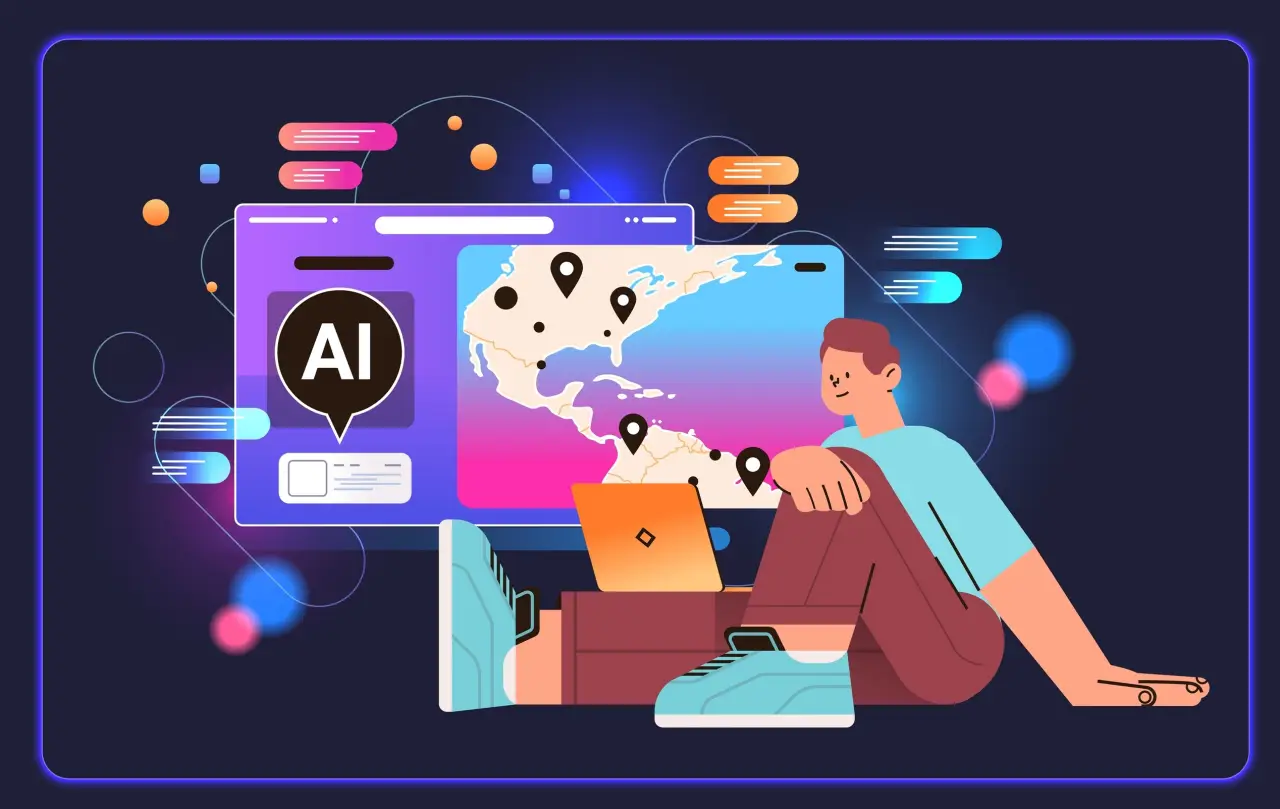AI Insights
Anthropic Settles Landmark Artificial Intelligence Copyright Case

Anthropic’s settlement came after a mixed ruling on the “fair use” where it potentially faced massive piracy damages for downloading millions of books illegally. The settlement seems to clarify an important principle: how AI companies acquire data matters as much as what they do with it.
After warning both the district court and an appeals court that the potential pursuit of hundreds of billions of dollars in statutory damages created a “death knell” situation that would force an unfair settlement, Anthropic has settled its closely watched copyright lawsuit with authors whose books were allegedly pirated for use in Anthropic’s training data. Anthropic’s settlement this week in a landmark copyright case may signal how the industry will navigate the dozens of similar lawsuits pending nationwide. While settlement details remain confidential pending court approval, the timing reveals essential lessons for AI development and intellectual property law.
The settlement follows Judge William Alsup’s nuanced ruling that using copyrighted materials to train AI models constitutes transformative fair use (essentially, using copyrighted material in a new way that doesn’t compete with the original) — a victory for AI developers. The court held that AI models are “like any reader aspiring to be a writer” who trains upon works “not to race ahead and replicate or supplant them — but to turn a hard corner and create something different.”
(For readers unfamiliar with copyright law, “fair use” is a legal doctrine that allows limited use of copyrighted material without permission for purposes like criticism, comment, or — as courts are now determining — AI training. A key test is whether the new use “transforms” the original work by adding something new or serving a different purpose, rather than simply copying it. Think of it as the difference between a critic quoting a novel to review it versus someone photocopying the entire book to avoid buying it.)
After ruling in Anthropic’s favor on this issue, Judge Alsup drew a bright line at acquisition methods. Anthropic’s downloading of over seven million books from pirate sites like LibGen constituted infringement, the judge ruled, rejecting Anthropic’s “research purpose” defense: “You can’t just bless yourself by saying I have a research purpose and, therefore, go and take any textbook you want.”
The settlement’s timing suggests a pragmatic approach to risk management. While Anthropic could claim vindication on training methodology, defending its acquisition methods before a jury posed substantial financial exposure. Statutory damages for willful infringement can reach $150,000 per work, creating potential liability for Anthropic totaling in the billions.
Anthropic is still facing copyright suits from music publishers, including Universal Music Corp. and Concord Music Group Inc., as well as Reddit. The settlement with authors removes one of Anthropic’s many legal challenges. Lawyers for the plaintiffs said, “[t]his historic settlement will benefit all class members,” promising to announce details in the coming weeks.
This settlement solidifies the principles established in Judge Alsup’s prior ruling: how AI companies acquire training data matters as much as what they do with it. The court’s framework permits AI systems to learn from human cultural output, but only through legitimate channels.
For practitioners advising AI projects and companies, the lesson is straightforward: document data sources meticulously and ensure the legitimate acquisition of data. AI companies that previously relied on scraped or pirated content face strong incentives to negotiate licensing agreements or develop alternative training approaches. Publishers and authors gain leverage to demand compensation, even as the fair use doctrine limits their ability to block AI training entirely.
The Anthropic settlement marks neither a total victory nor a defeat for either side, but rather a recognition of the complex realities governing AI and intellectual property. It also remains to be seen what impact it will have on similar pending cases, including whether this will create a pattern of AI companies settling when facing potential class actions. In this new landscape, the legitimacy of the process matters as much as the innovation of the outcome. That balance will define the next chapter of AI development. Under Anthropic, it is apparent that to maximize chances of AI models constituting fair use, developers should use a bookstore, not a pirate’s flag.
AI Insights
This MOSI exhibit will give you a hands-on look at artificial intelligence – Tampa Bay Times
AI Insights
Spain Leads Europe in Adopting AI for Vacation Planning, Study Shows

Spain records higher adoption of Artificial Intelligence – AI in vacation planning than the European average, according to the 2025 Europ Assistance-Ipsos barometer.
The study finds that 20% of Spanish travelers have used AI-based tools to organize or book their holidays, compared with 16% across Europe.
The research highlights Spain as one of the leading countries in integrating digital tools into travel planning. AI applications are most commonly used for accommodation searches, destination information, and itinerary planning, indicating a shift in how tourists prepare for trips.
Growing Use of AI in Travel
According to the survey, 48% of Spanish travelers using AI rely on it for accommodation recommendations, while 47% use it for information about destinations. Another 37% turn to AI tools for help creating itineraries. The technology is also used for finding activities (33%) and booking platform recommendations (26%).
Looking ahead, the interest in AI continues to grow. The report shows that 26% of Spanish respondents plan to use AI in future travel planning, compared with 21% of Europeans overall. However, 39% of Spanish participants remain undecided about whether they will adopt such tools.
Comparison with European Trends
The survey indicates that Spanish travelers are more proactive than the European average in experimenting with AI for holidays. While adoption is not yet universal, Spain’s figures consistently exceed continental averages, underscoring the country’s readiness to embrace new technologies in tourism.
In Europe as a whole, AI is beginning to make inroads into vacation planning but at a slower pace. The 2025 Europ Assistance-Ipsos barometer suggests that cultural attitudes and awareness of technological solutions may play a role in shaping adoption levels across different countries.
Changing Travel Behaviors
The findings suggest a gradual transformation in how trips are organized. Traditional methods such as guidebooks and personal recommendations are being complemented—and in some cases replaced—by AI-driven suggestions. From streamlining searches for accommodation to tailoring activity options, digital tools are expanding their influence on the traveler experience.
While Spain shows higher-than-average adoption rates, the survey also reflects caution. A significant portion of travelers remain unsure about whether they will use AI in the future, highlighting that trust, familiarity, and data privacy considerations continue to influence behavior.
The Europ Assistance-Ipsos barometer confirms that Spain is emerging as a frontrunner in adopting AI for travel planning, reflecting both a strong appetite for digital solutions and an evolving approach to how holidays are designed and booked.
Photo Credit: ProStockStudio / Shutterstock.com
AI Insights
NBA star Tristan Thompson is bringing artificial intelligence to basketball fans

Listen and subscribe to Financial Freestyle on Apple Podcasts, Spotify, or wherever you find your favorite podcasts.
Tristan Thompson is well-recognized for his career in the NBA, having played for teams like the Cleveland Cavaliers, the Boston Celtics, and the Los Angeles Lakers, to name a few. He was even part of the team that earned an NBA championship in 2016. But while Thompson’s basketball reputation precedes him, off the court, he’s focusing on his various entrepreneurial ventures.
When asked by Yahoo Finance’s Financial Freestyle podcast host Ross Mac if he would invest his final dollar in artificial intelligence or the blockchain, Thompson picked the industry that’s already projected to be worth $3.6 trillion by 2034.
“You see what Mark Zuckerberg’s paying for all these AI gurus? So I might go AI,” he said (see the full episode above; listen below).
This embedded content is not available in your region.
Thompson has already made AI one of his entrepreneurial ventures with the launch of TracyAI, an artificial intelligence that’s meant to offer real-time NBA analysis and predictive insights.
“Imagine a sports analyst or commentator on steroids,” he explained to Mac. “What I mean by that is having all the high-level analytics that you cannot get from NBA.com and ESPN … the analytics are coming from the professional teams. We have certain data and access to certain companies that only professional sports teams have access to. And I was able to pull that data with my resources and put it into the AI agent.”
Thompson saw the venture as “low-hanging fruit,” as it was one of the few areas he hadn’t yet noticed artificial intelligence being worked into. Though AI is slowly finding its way into the sports industry, TracyAI offers basketball fans access to statistics and projections they may not have had through the typical channels, creating a unique fan experience.
Though Thompson admitted AI has created some of its own controversies, it’s a venture where he’s ready to invest some of his financial resources to capitalize on the industry’s projected rapid growth.
“For me, it’s like, if [AI is] covering so many sectors, how come it hasn’t got into sports?” Thompson said. “This is an opportunity where I can be a visionary and a pioneer … I’ve always had this grind, build-up mentality, so it just migrated easily into Web3. If you look at Daryl Morey, he said he used AI agents to curate his Sixers roster … that just shows you that’s the first domino effect into something great.”
-
Tools & Platforms3 weeks ago
Building Trust in Military AI Starts with Opening the Black Box – War on the Rocks
-

 Business2 days ago
Business2 days agoThe Guardian view on Trump and the Fed: independence is no substitute for accountability | Editorial
-

 Ethics & Policy1 month ago
Ethics & Policy1 month agoSDAIA Supports Saudi Arabia’s Leadership in Shaping Global AI Ethics, Policy, and Research – وكالة الأنباء السعودية
-

 Events & Conferences3 months ago
Events & Conferences3 months agoJourney to 1000 models: Scaling Instagram’s recommendation system
-

 Jobs & Careers2 months ago
Jobs & Careers2 months agoMumbai-based Perplexity Alternative Has 60k+ Users Without Funding
-

 Funding & Business2 months ago
Funding & Business2 months agoKayak and Expedia race to build AI travel agents that turn social posts into itineraries
-

 Education2 months ago
Education2 months agoVEX Robotics launches AI-powered classroom robotics system
-

 Podcasts & Talks2 months ago
Podcasts & Talks2 months agoHappy 4th of July! 🎆 Made with Veo 3 in Gemini
-

 Podcasts & Talks2 months ago
Podcasts & Talks2 months agoOpenAI 🤝 @teamganassi
-

 Mergers & Acquisitions2 months ago
Mergers & Acquisitions2 months agoDonald Trump suggests US government review subsidies to Elon Musk’s companies

